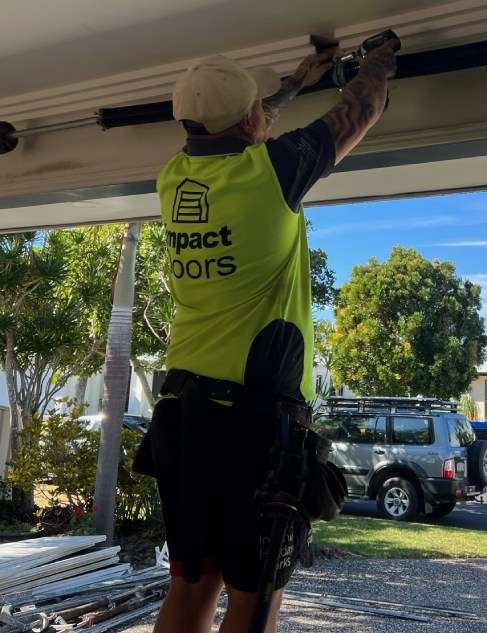Introduction
Nothing beats the convenience of a well-functioning garage door. Whether you’re rushing to work, coming home after a long day, or simply trying to keep your car protected from the elements, a functional garage door is essential. However, like any mechanical system, garage doors can encounter problems that might be beyond the scope of DIY repairs. This article dives deep into the complexities of garage door issues and explores why sometimes “Garage Doors Gone Bad: When DIY Repairs Aren't Enough” rings true.
Garage Doors Gone Bad: When DIY Repairs Aren't Enough
When it comes to home repairs, many people opt for the DIY route. After all, who doesn’t love saving a few bucks? YouTube tutorials and online guides make it seem easy. Unfortunately, when your garage door starts malfunctioning—whether it won’t close properly or makes strange noises—it’s not always a simple fix.
Understanding Garage Door Mechanisms
The Anatomy of a Garage Door
To comprehend why some issues are too complex for DIY repairs, it's crucial to understand how a garage door operates. A typical garage door system consists of several components:
- Garage Door Panels: The large sections that make up the door. Garage Door Opener: The motorized device that opens and closes the door. Garage Door Springs: These counterbalance the weight of the door and assist in its opening and closing. Tracks and Rollers: These guide the door as it moves up and down.
Each component plays an integral role in ensuring smooth operation; if one part fails, others may follow suit.
Common Garage Door Issues
Some common problems include:
- The garage door won’t close. It makes grinding noises during operation. The springs are broken.
While these issues may seem manageable at first glance, they can often point to underlying problems that require professional intervention.
Why DIY Repairs Can Be Risky
Safety Concerns with Garage Doors
Attempting to repair a garage door without proper expertise can lead to serious injuries. For instance, working with garage door springs local garage door service can be particularly hazardous due to their high tension. A spring that snaps while you’re attempting repairs can cause severe damage—or worse.
Complexity of Garage Door Systems
Many homeowners underestimate just how intricate these systems are. Misdiagnosing an issue could lead you down a rabbit hole of unnecessary repairs and expenses. For example, if your garage door won't close because of a faulty opener but you spend hours tinkering with the springs instead, you've wasted both time and money.
Signs You Need Professional Garage Door Service
Warning Signs That Indicate Trouble Ahead
If you notice any of these signs, it's time to call in experts:
The garage door opens unevenly. There are visible damages on panels or tracks. Your garage door opener is malfunctioning regularly. Loud noises during operation become frequent.Ignoring these signs can escalate minor issues into significant problems requiring extensive repairs.
When Should You Call for Garage Door Service Moreton Bay?
Assessing the Situation Before Calling for Help
Before deciding whether you need professional help from services like “garage door service Moreton Bay,” consider:
- How severe is the problem? Have you attempted repairs before? Are safety concerns apparent?
If you're uncertain about any aspect of your garage doors’ functionality or safety concerns arise during your inspection, don't hesitate—call an expert!
The Role of Maintenance in Preventing ‘Garage Doors Gone Bad’ Situations
Essential Maintenance Tips for Homeowners
Preventive maintenance goes a long way in ensuring your garage doors function optimally:
Regularly lubricate moving parts like rollers and hinges. Inspect springs for wear and tear every few months. Keep tracks clean from dirt and debris.Routine checks can save homeowners time and money by avoiding unexpected breakdowns.
DIY vs Professional Repair: What’s Best?
Evaluating Costs vs Expertise
You might wonder—is it worth calling professionals? While hiring experts incurs costs upfront (like those associated with “garage door service”), consider this:
Expertise saves time—professionals know what they’re doing! Guarantees ensure peace of mind; most services offer warranties on parts replaced or repaired. Safety is paramount; professionals come equipped with tools designed specifically for the job.FAQs About Garage Doors
1. Why won’t my garage door close?
There could be several reasons! Most commonly:
- Obstructions in the track Malfunctioning sensors A faulty garage door opener
2. How do I know if my springs need replacing?
Look for:
- Visible gaps Rust or wear A sagging or unevenly closed door
3. Can I replace my own garage door opener?
Yes! If you're comfortable working with electrical components and heavy machinery, but remember to unplug it first!
4. What does it mean if my garage door makes loud noises?
Grinding or squeaking sounds typically indicate:

- Lack of lubrication Worn rollers Damaged springs
5. Is professional maintenance worth it?
Absolutely! Routine checks by professionals reduce risks of larger issues down the line—saving you money overall.
6. How often should I perform maintenance on my garage doors?
Aim for twice yearly inspections—more frequently if you use them often!
Conclusion
In summary, while DIY repairs might be tempting when dealing with common issues like “garage doors gone bad,” they often lead to complications that require professional attention anyway—making them an ultimately costly decision! Understanding when to call in trained technicians ensures safety while preserving functionality over time; taking preventive measures through regular maintenance further safeguards against unexpected failures down the road! So next time you're faced with stubborn panels refusing closure or an errant noise echoing through your driveway—you’ll know exactly when it’s time to wave goodbye to DIY fixes!